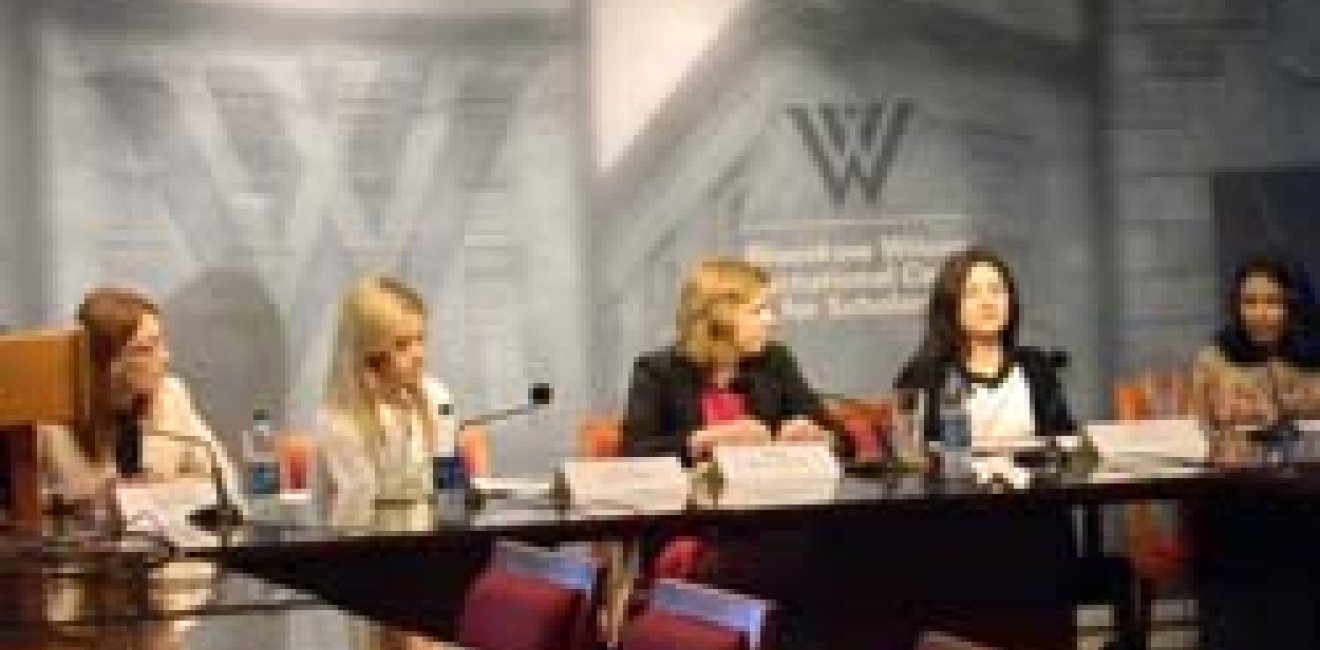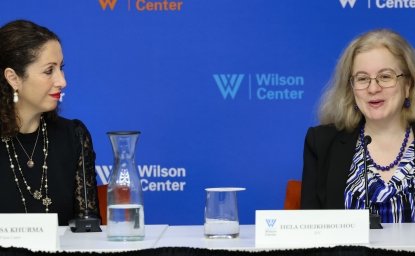On June 19, the Woodrow Wilson International Center for Scholars’ Global Women’s Leadership Initiative (GWLI) presented “A Conversation on the Role and Impact of Women in Lawmaking in Kosovo” in collaboration with the National Albanian American Council. The event, moderated by Rangita de Silva de Alwis, brought together four public policy and law experts who weighed in on the importance of women’s advancement in Kosovo’s government.
As an emerging democracy, the Republic of Kosovo is situated in a unique transitional stage in which women’s participation will be vital for establishing an accountable, inclusive government; it can also serve as an example for other transitional states forging a path for gender equality through policy. The GWLI’s July 19 panel was a critical venue for providing analysis and testimonies of Kosovo’s successes and challenges in gender equality. The four panelists illuminated four separate areas of the question: the viability of quota systems, women’s involvement in local government, the role of legislation to prevent domestic violence, and the future of women in Kosovo’s diplomacy efforts.
Venera Kabashi, Senior Legal Officer at the Ministry of Justice, Kosovo, began the conversation by describing Kosovo’s general election law, which establishes a 30% quota for women in elected positions. Although some scholars believe that quotas can be counter-productive by painting a picture of women officials as weak and undeserving, Kabashi emphasized that quotas can speed up a mentality change for transitional countries. Not only do quotas increase the number of role models for other women interested in public service, studies have shown that they have an additional indirect effect on gender discrimination by causing fathers to aspire for more for their daughters and to keep them in school longer. “It’s not that we’re perfect now,” Kabashi noted on Kosovo’s progress, “it’s that we’re moving.” Blerta Miftari, Chief of the Cabinet of Kosovo’s Deputy Prime Minister and Minister of Local Government Administration, added to these points by describing the role of women in local government and the effectiveness of quotas at the local level. She argued that adequate budgeting and coordination is necessary to achieve gender equality in smaller municipalities that otherwise might fall off the radar.
Linda Abazi-Morina of the United Nations Populations Fund subsequently spoke about Kosovo’s legislative framework on domestic violence. Although Kosovo is making great strides in violence prevention and service provision for the survivors of violence (who are disproportionately women), there are still many impediments for those who wish to report a perpetrator, including cultural stigma, privacy issues, and the lack of economic self-sufficiency from one’s abuser. Kosovo is embarking on a program to make free legal aid, psychological services and medical treatment available to domestic violence survivors; properly train police responders; and improve coordination between different institutions like schools, hospitals and the police force.
Finally, Meliza Haradinaj, a council member in the Municipality of Kosovo’s Capital, Prishtina, discussed gender equality in the realm of diplomacy. Women diplomats are particularly critical in foreign affairs because they are representatives of an entire nation and reflect on the commitment to equality. Key figures in international politics affect a population’s self-image and their image in the eyes of the world.
All four women underscored the importance of ensuring that these efforts are adequately funded and enforced. Without thorough implementation, they noted, policies are useless. A second overarching theme of the panel was the place of education in transforming gender relations. Because the majority of the population of Kosovo is under 35 years old, educating youth on gender equality must be a focus in order to move past historical patriarchal power differences.
Although the panelists agreed that being a woman in the public sphere can be extraordinarily difficult – women officials often get judged more on how they dress and how they say things than what they are saying – they were optimistic about Kosovo’s future as an egalitarian state for women in government positions.





